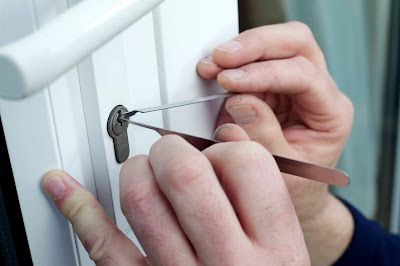How To Choose The Right Safes For Your Home?
You probably have a safe in your house. It's where you keep your valuables, like documents and special jewelry, things you want to keep safe. But how do you choose the right safe for your needs? How do you know what type of lock mechanism is best? Let's choose the right Safes Adelaide for your home.
Determine your needs
The first step in selecting a safe is to determine your needs. The type of safe you choose will depend on what you need to store, how much space the safe has and how often it will be used.
- What do I want to store in the safe?
- How much do I want to store in the safe?
- How many people know the combination (if applicable)?
Choose the right safe for you.
Now that you've researched and have a better idea of the types of safes available, it's time to choose one. If you're going to be putting your safety in an accessible location (like a closet), a smaller size will work best. The trade-off is that larger safes are generally more secure than smaller ones because they weigh more, making them harder for burglars to carry away. A bigger safe will also give you room for more valuable items like cash or jewelry.
On the other hand, if you want something easy to move around when needed but don't have tons of floor space available in your home (or if having something heavy on top of the bed isn't ideal), then look into a smaller option that can store only what's necessary at any given time while still providing enough security for its contents.
Select a reputable brand.
When selecting a safe, one of the most important things to consider is the manufacturer's reputation. You want to buy a safe that a reputable company makes with an established track record. In general, reputable companies have better quality control and customer service than their less-reputable counterparts. As such, they usually offer better warranties and security features as well.
Lastly, it's important to note that safes from reputable brands are often more secure in general; this means that they're more difficult for thieves or burglars to break into than cheap safes (which are generally much easier for criminals to get through).
Consider the material of making.
The material of the safe is another important consideration. Some safes are made from steel and others may be constructed from steel alloys. The choice you make will depend on several factors, including how much it weighs, its durability and how easy or difficult it is to move and open.
If you're looking for a heavy-duty option built to last, consider investing in a safe made from solid steel, as these are some of the toughest available on the market. However, if your main concern is keeping your valuables safely stored away while also ensuring they're portable enough so as not to take up too much space when they're not being used, then opt for an alloy-based unit instead; this will provide similar levels of protection but with less weight than its all-steel counterpart!
Check the fireproof rating.
The best way to determine whether a safe is suitable for your home is to check its fireproof rating. The minimum requirement for any safe is 60 minutes, which means that it should be able to withstand temperatures of 1,200°F for an hour without being destroyed. The higher the rating, the better: 90 minutes and 120 minutes are ideal for long-term storage needs.
Fireproof ratings are based on what temperature a fire can reach and how long it burns. Keep in mind that the hotter a fire gets, the faster it will destroy your valuables inside a safe—so make sure you choose one with an appropriate fireproof rating!
Consider the locking mechanism.
While there are many different kinds of locking mechanisms, the most common ones include:
- Boltwork locks can be either manual or electronic. You know you’re looking at a bolt work lock with a keyhole, and you need to turn the key to open the door.
- Combination locks, use numbers on their dials instead of keys. These can be mechanical or digital and need to be rotated in a certain way before they unlock.
- Keypad-activated electronic safes that require an access code or fingerprint scan from whoever wants to open them up—and then close again automatically after use (no longer forgetting whether you locked your safe).
Conclusion
Hopefully, this article has given you some ideas about what features to look for in a safe. Remember that different Safes Adelaide have different advantages and disadvantages, depending on your needs and preferences. As with any other major purchase, don’t decide without researching the available options first!


Comments
Post a Comment